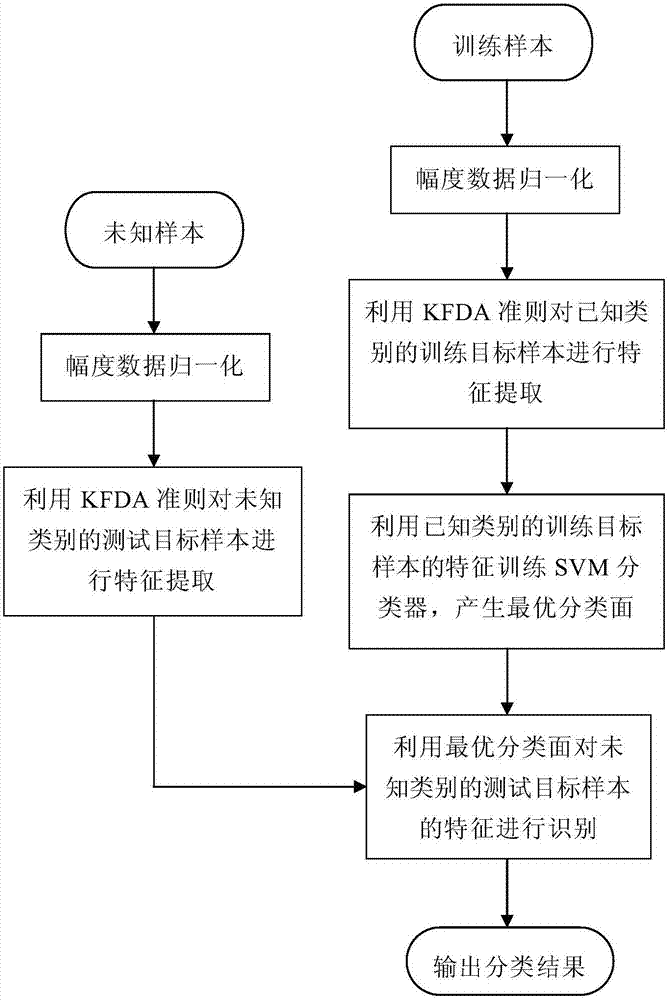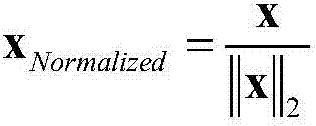A SAR image target feature extraction and recognition method based on kfda and svm
A technology of target features and recognition methods, applied in character and pattern recognition, instruments, computer components, etc., can solve the problems that the optimal classification surface is not the global optimum, cannot extract nonlinear features of images, and does not have the ability to classify , to achieve the effect of overcoming orientation sensitivity, good generalization, and low feature dimension
- Summary
- Abstract
- Description
- Claims
- Application Information
AI Technical Summary
Problems solved by technology
Method used
Image
Examples
Embodiment Construction
[0050] The present invention will be described in detail below in conjunction with the accompanying drawings and specific embodiments.
[0051] like figure 1 Shown, the specific implementation steps of the SAR image target feature extraction and recognition method based on KFDA and SVM of the present invention are as follows:
[0052] Step (1), normalize the amplitude data of the training target samples of the known category and the test target samples of the unknown category, and the normalization formula is:
[0053]
[0054] Among them, x is a vector representation of any known category of training target samples or unknown category of test target samples (that is, the image matrix is arranged into a vector form by column), x Normalized It is a vector representation after normalization of the magnitude data of the corresponding training target samples of the known category or the testing target samples of the unknown category.
[0055] Step (2), using the KFDA criter...
PUM
 Login to View More
Login to View More Abstract
Description
Claims
Application Information
 Login to View More
Login to View More - R&D
- Intellectual Property
- Life Sciences
- Materials
- Tech Scout
- Unparalleled Data Quality
- Higher Quality Content
- 60% Fewer Hallucinations
Browse by: Latest US Patents, China's latest patents, Technical Efficacy Thesaurus, Application Domain, Technology Topic, Popular Technical Reports.
© 2025 PatSnap. All rights reserved.Legal|Privacy policy|Modern Slavery Act Transparency Statement|Sitemap|About US| Contact US: help@patsnap.com



